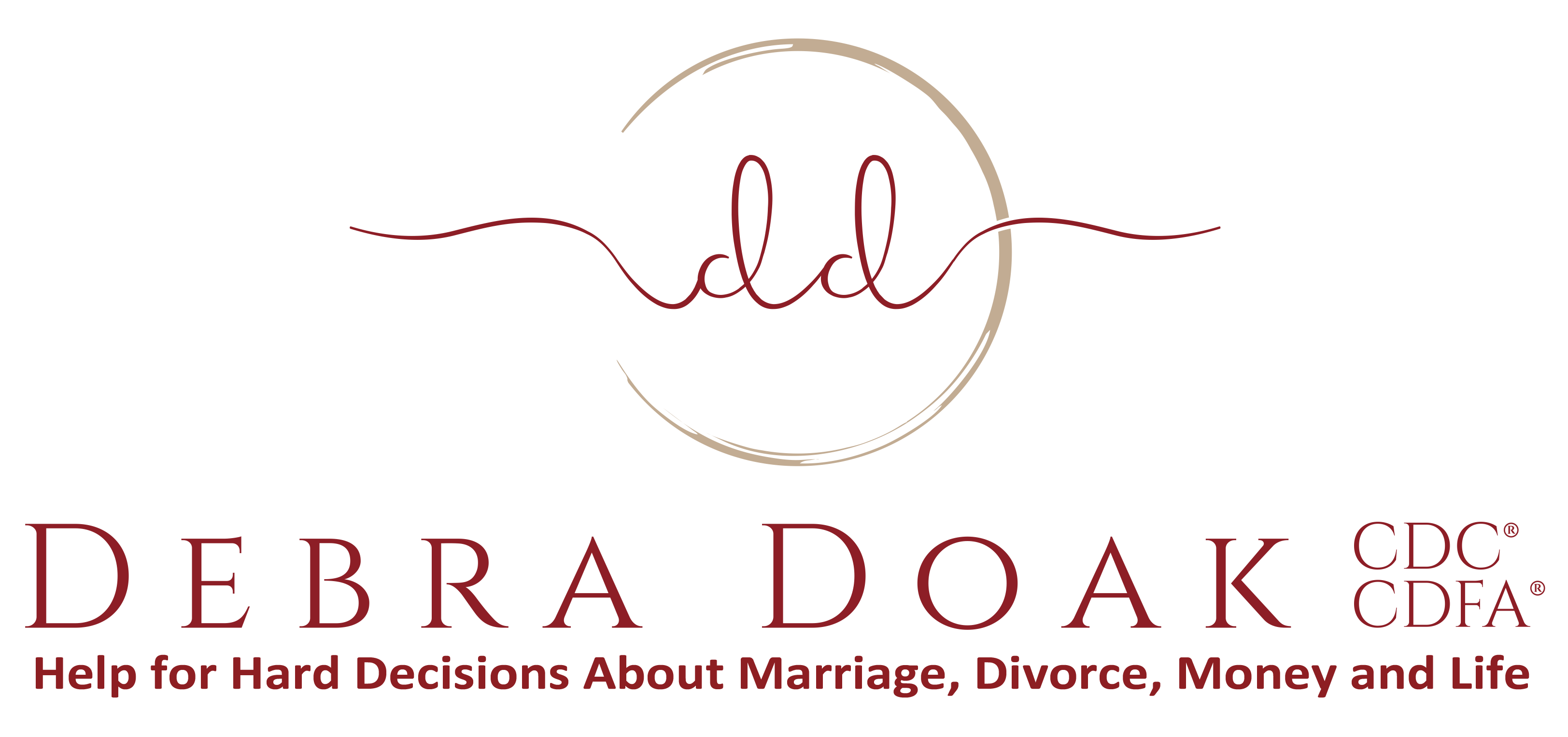
Financial Disclosure Forms: Worth the Effort
As emotional as you’re feeling, divorce is mostly about dividing up your financial life – assets, debt, spousal support and child support. One of the first official things both you and your spouse may be asked to do is submit a financial disclosure statement to the court. Every state has some version of a sworn financial disclosure.
Forms in each state are different, however the basic information is the same. These forms give judges the information necessary to make fair decisions on child support, alimony and division of assets and debts.
Your financial statements have to be accurate to ensure a equitable division.
Divorce 101: Financial Disclosure
Financial disclosure serves two important purposes in divorce.
First, it is a legal instrument and is intended to compel both parties to accurately disclose financial data. It is in everyone’s best interest if both of you are honest and complete as it helps the divorce to go more smoothly and be less contentious (read this as moves faster and costs less).
Hiding assets or income is never a good idea although folks do try to get away with it. Anyone who intentionally provides false information on a financial statement is committing perjury and could face serious legal action, not to mention that they will lose a ton of credibility with the court. There are legal means available to the court to obtain missing information or investigate hidden assets. Forensic accountants specialize in this work. They aren’t cheap, but if you have reason to believe that something is being omitted it may be well worth the expense.
Second, you, your attorney and the judge will use them as the basis for negotiation and decision making. It is vital that you have a complete picture of your financial life, but more importantly, the information reported will be used to determine your final award. If you don’t take time to accurately assess your true living expenses, you could be awarded or agree to less than you need or deserve.
Coach Tip: It’s a good idea to hope for the best, but prepare for the worst. Make copies of any important financial documents like tax returns, investment & retirement account statements, mortgages and property deeds and store them at a friend’s house (just in case). You may also want to take photographs of valuables like art, jewelry, antiques.
Where to Begin?
What if you don’t know your numbers? Is it time to panic and go into hiding in a third world country? Absolutely not.
This is the most intimidating step for many of my clients. Especially if they haven’t been involved in their marital finances.
Step one is to conduct a lifestyle analysis. This involves going back over a year or so of checking account and credit card statements. You want to determine your average spending habits and identify any occasional expenses that you might be likely to forget. Also, look through deposits to determine all sources of income. Yes this takes a bit of work (treat yourself to Starbucks or some good wine to get through it), but it will be well worth the effort.
This is also an important part of keeping your expenses down. Learn more about how to have a budget friendly divorce here.
Coach tip: Many banks, credit unions and credit card companies automatically categorize your expenses for you. Does your financial institution provide that service? Awesome! Just check over the entries and a lot of the work is already done for you.
Next, you can move on to assets like your home, cars, rental properties, stocks, bonds, and retirement accounts. If your financial picture is complicated, your accountant, a financial professional or a Certified Divorce Financial Analyst® can assist you.
![]()
Get a jump start with my Ditch Your Divorce Fears Financial Planner.
These are the tools, tips, and worksheets I use with clients every day to help them take charge of their financial lives. Whether you’re preparing for divorce, right in the thick of settlement negotiations, or just want to get a handle on your finances, this Starter Pack will put you on the path to success.
Congratulations! You Did Hard Things.
You’ve done the hard work and now you can reap the benefits. Having accurate financial disclosure forms and knowing your post-divorce budget will give you the information and confidence you need to make decisions when evaluating your settlement options. They also guide you to design a post-divorce life that you can maintain.
Your divorce attorney will only look over your financial affidavit for glaring mistakes. They will provide you with the proper forms and general guidance, but don’t count on them to use a fine-tooth comb to go through the numbers you submit. Divorce attorneys are busy and will likely notice only the most obvious – like a clothing budget of $20,000 a month or if you left out a rent payment. If you forget to include a big expense or asset, it could affect your final outcome. But, no pressure. Ugh.
Remember this: Your financial affidavit can be revised even after it’s filed with the courts. If your circumstances change, you can – and should – update your financial affidavit.
Now, stay focused on your priorities. What do you want and need for your future? Put your settlement decisions through that filter. Can you afford to keep the home if you don’t go back to work? Would you rather have a larger share of the retirement account or cash on hand now? China or crystal? Prepare to negotiate from a position of knowledge and strength. You’ve got this!
Need More Help?
It’s what I do. I work with clients to understand their current finances and future needs to make the best decisions in divorce. Schedule a FREE, 30-minute Discovery Session and let’s chat about where you could use some back up.
Wishing you strength and wisdom,




